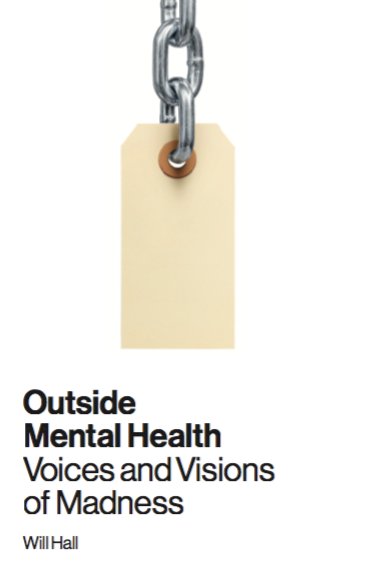Sane Medication Policy: Robert Whitaker
First Aired: 03-30-2009 -- 17 comments | Add comment

Has society’s embrace of psychiatric medications led to recovery — or chronic disability? What would honest medical policy and treatment standards be if they were free of pharmaceutical company corruption?
Pulitzer Prize finalist Robert Whitaker, author of Mad In America: Bad Science, Bad Medicine, and the Enduring Mistreatment of the Mentally Ill, discusses medications as a failed paradigm of care, and imagines what a sane alternative would look like.
Podcast: Play in new window | Download (Duration: 51:25 — 47.1MB)
Subscribe: RSS
- Show topics:
- Big Pharma
- Books
- Drugs
- Mad Science
- System Abolition



























 Creative Commons 2.5 copyright
Creative Commons 2.5 copyright
Please help, my boyfriend is in a psych ward for having a bad psychosis episode due to getting a virus. After he was given seroquel a few years ago things have gotten worse. Even though we took him off it over year and half ago he now has a worse episode than before taking this drug. I would rather that they would watch the triggar of a psychosis and hopefully prevent it or at the very least put him on it for just a short time until he gets better. Please help, this system is so stupid and greedy.
Hi Mary, I’m sorry to hear about that difficult situation with your boyfriend. email me directly at will(at)willhall(dot)net and I will try to connect you with resources that might be able to help. – Will
We live in New Bedford,MA. A few years ago when living in Northern Maine he began to hear voices and they put him on seroquel. I believe from past experience that the episode would have passed naturally. Perhaps he did need a safe environment for a night or two but that would have done the trick. Prior to this he had no real serious problems for about thirteen years. We got him off the drugs and he hadn’t had an episode in over a year and a half but this last episode was far worse.
He always has a virus and is dehydrated when he has an episode and now his blood sugar gets high and makes the situation far worse. He is coming out today on 16mg Trilafon and 1mg congentin. He doesn’t seem to be as drugged as in the past but I’m still worried about the long term effects of being on this medecine even though I talked them into giving him as low a dose as possible and got him off Halodol which was really not agreeing with him. We could do with a support system other than social workers, therapists and psychiatrists to get an objective view. I believe the people who have gone through this are the best people to ask. The medical people are so in denial that these drugs even have side affects that I wonder who are the real mad ones. As Echart Tolle author of the Power of Now says if you fight madness you become mad yourself. Thank you so much for your help. Mary McAlinden. Our email is rckygmnd@aol.com.
I have some ideas and will email you. – Will
yes i am looking at them but it seem there is not much we can do it take cash and i only have a littal of it they have the hole system and when i was in the system and asked for something for anxiety i didnet even know what bensos were but i was talking to others in the system and they told me they helped alot so i ask for them you see i did not want to start drinking as i did in my younger years i did not get them and i was fine with it after the 2 years of druged up i went to another dr and i was informed that the last dr said i was pledaling for drug so no mater what you do or say they have the power for now i have in the past used steat drugs but i am a bipolar with bpd if i want to get high all i have to do is just stay off med its free and you know what funny i had a cdL hasmat 5year and cdL all indorsment intotal for 10 years never ones did i fail a drug test did not get real sick until in my 30
people are scared even the dr s they over med me for 2 years slowly killing me and my faimly wonders y i wont see a dr i am unwilling to give them a second chance they are the mad ones and no one see that all they see is what they are told by the authority s in the system and they say they wont to help but all they wont is to study you for free and pay for the meds
I suffer from schiz and found every thing you said to be true
I think in years to come we will look back at psychiatry of today in disbelief like we do know of practices 50 years ago
I’m impressed by the “follow the money” angle on the psyche drugs issue.
And interestingly enuf my bro is schizo/para and smokes marijuana… but years before when the drug scene was just coming of age in the mid 60’s – we were told by his friend that he would take any drug in any combination at anytime. So I have no doubt that excessive drug use was what got him. He was in pain and definitely self-destructive.
He still smokes marijuana – maybe if he didn’t …
I’ve put a link to your website on my blog.
Thanks!
Great show! The ironic or just sad thing for me is that due to taking lithium and having kidney disease and now a transplant, I can’t take any supplements at all and can’t even get a massage until my white blood cell count is in a safer range. Misdiagnois, persuasion that lithium was as necessary as insulin and that it was safe, always told it was safe, put me in the place where my only recourse for transplant med. induced symptoms is benzos for now at least. If I could go back 26 years and tell my young self what I know now, how different my life would be. My best hope is that young people today will wise up much earlier with the internet and peers and that the regressive laws forcing people onto meds. will be repealed for economic reasons even though I wish they would be repealed for the right reasons–that we have civil rights just like anyone else.
I don’t know why you think we have civil rights “just like anyone else.” When one is committed to a mental “hospital,” one is given a “Patient’s Bill of Rights,” which of course is not THE Bill of Rights, it is the PATIENT’S Bill of Rights. The one that allows this segment of society to be held captive for long periods of time for no good reason and drugged against our will.
Psychiatry has always been rulers of society, at least they try and plan to be. They are here to protect society from any person or types of people who may disrupt it. They protect the schools from disobedient students, they protect society from adults who are; dependent burdens, frequent trouble makers (getting in trouble a lot without breaking the law), activists, ect… But tell this to anybody and they’ll just call you a scientologist.
Hey there manicforlife–your story is similar to so many people. It is great to see you here– I hope you can write more about your experiences. Have you connected with the community forums over at http://www.theicarusproject.net? You are not alone— will
If you check the News Network Links you can often find latest information related to shows on Madness Radio. Here is more on Biederman: http://www.sfgate.com/cgi-bin/article.cgi?f=/c/a/2009/03/27/EDAF16N963.DTL&t
Hi Alison, thanks for having the courage to speak out, people really need to hear about how devastating psych drugs can sometimes be to physical health, especially when taken long term. Lithium is a very harsh and risky drug, anyone who gets on it should be working right away to explore gradually coming off. And becoming more vulnerable to psychosis and relapse is one of the worst effects of the meds. It is terrible that doctors often don’t know the facts or support their patients; I’m glad you were able to get some medical care and that you are still here with us today.
I do have hope that the society is more open to critical views of psychiatry these days. In the interview Bob said where is putting his hope is in the parents who have been misled into trusting drugs for their kids, and now discovering the harm that is being caused. The industry just tends to develop new and “safer” drugs in light of growing public awareness — that’s the story of the fraudulent marketing of the so-called ‘atypicals’ — and I think the real problem lies, like so many in our country, with the media being way too slow to challenge the corporate agenda, if ever. I’m glad to be able to offer Madness Radio and hope that it contributes to greater awareness and growing change. – Will
Pingback: Robert Whitaker on psychiatric care | Canadian Liberty
Pingback: Är medicin effektivt på lång sikt? | Det känsliga barnet
Pingback: Robert Whitaker on Psychiatric Care – Power and Reality